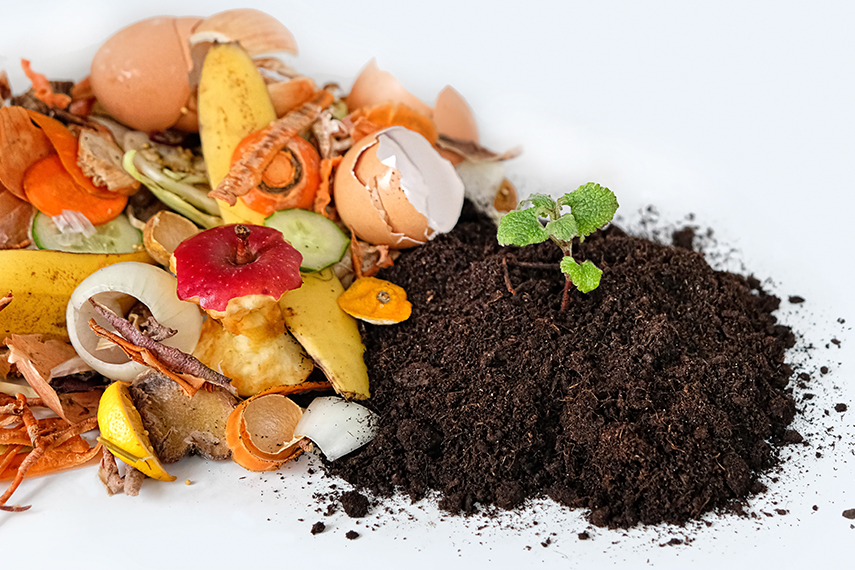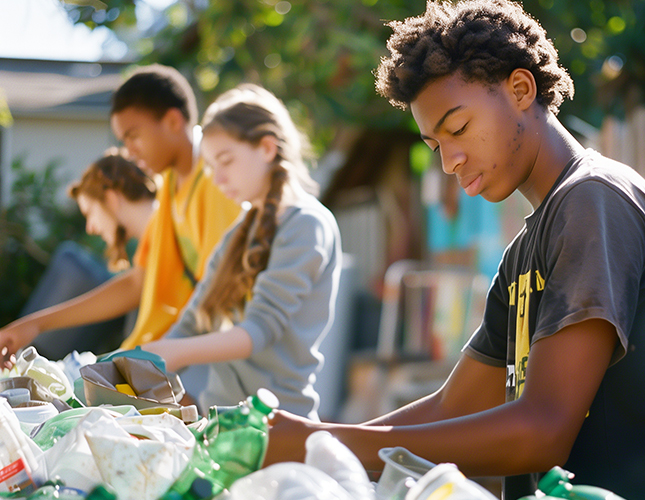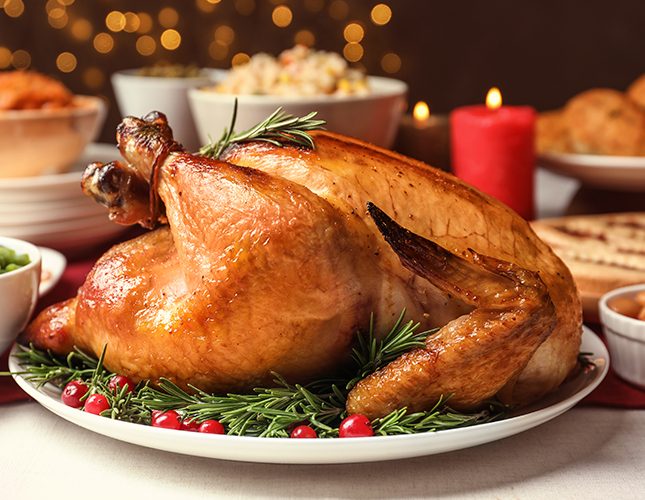Composting your Thanksgiving turkey for the environment
Ginette’s turkey, Sandra’s frozen carrots, Mom’s pumpkin pie: it’s delicious, but sometimes there’s too much! Instead of throwing your expired leftovers in the garbage, compost them! Yes, we’re talking about the famous brown bin! Did you know that about 45% of the household waste of Quebecers living on the Island of Montreal is organic and therefore compostable? Tons and tons of banana peels, chicken bones and small dishes left in the fridge are used to make compost, which is then used to enrich the soil in our gardens. There are several advantages to composting our organic matter, but first, let’s ask ourselves the real questions.
Why compost?
The answer is simple: why not? Just as a recycling bin or a garbage bin is now a part of our lives, simply deposit our organic matter in a brown bin that is available in most municipalities in Quebec and picked up according to a schedule. Composting is as simple as recycling!
All ways (and reasons!) are good for reducing our carbon footprint. Separating organic materials from recyclables and waste reduces their impact on the environment and allows for better recovery. When we deposit our organic materials in a brown bin, they are sent to a processing centre instead of a landfill.
Note that if the processing centre is located closer to the collection sites, mileage savings will be achieved, which has an undisputed impact on GHG production, knowing that the transportation sector is one of the world’s largest producers of pollution. Did you know that Ricova, in addition to sorting centres, operates a large fleet of trucks that collect waste and recyclable materials, as well as the contents of your brown bin?
What does biomethanization do?
The organic what? You are right to ask because it is not a very common process in Quebec, although it has been used for a long time in Europe. To simplify, biomethanization is a process in which organic matter is transformed into biogas through the work of microorganisms involved in fermentation. The gas produced can then be used as a power source to replace less green energy sources, to reduce heating costs in the winter or air conditioning in the summer or can even become a complementary source to hydroelectricity.

What are the benefits of composting?
Whether it’s done in your backyard or you put your compostable bag or paper bag in your brown bin, composting reduces the size of your garbage bag by 40% annually. Composting, whatever it is, is a serious ally to any type of soil by providing additional nutrients, maintaining a constant temperature in the soil, helping to retain water and contributing to root health. Be careful, it should not be confused with the fertilizer that contains much more nutrients. Compost acts as a natural support to make all soil life healthier.
A good compost is suitable for almost all plants and can be used everywhere: on the lawn, in the vegetable garden, as well as for flower beds. We also heard that he is the best friend of indoor plants and seedlings! It is therefore particularly important to compost our organic materials to give back to the earth!
I want to compost, but it stinks!
Composting means that organic materials spend a few days either in a small kitchen bin or outside in a brown bin. The smell may be unpleasant, but it is normal (unfortunately)! It testifies to fermentation activity. There are, however, some small things to do to mitigate it:
- Wash your bins regularly when they are empty and especially if there is liquid at the bottom of them.
- Keep lids closed at all times. It also helps to avoid visiting unwanted animals or forming flies.
- Put your brown bin in the shade. Heat cooks organic matter and accelerates its decomposition.
- Place your brown bin on the street every week, even if it is almost empty. Do the same with your small kitchen bin.
- Place newspaper between each organic deposit. Newspaper absorbs the liquid and prevents accumulation at the bottom of the bin.
- Apply baking soda to your bins to neutralize the smell… If it works for bad smells in the fridge, it also works for the brown bin!
- If space permits, freeze your compost and put it in the bin only the day before collection.
On your marks, ready, compost!
If you have any questions, do not hesitate to contact us!








